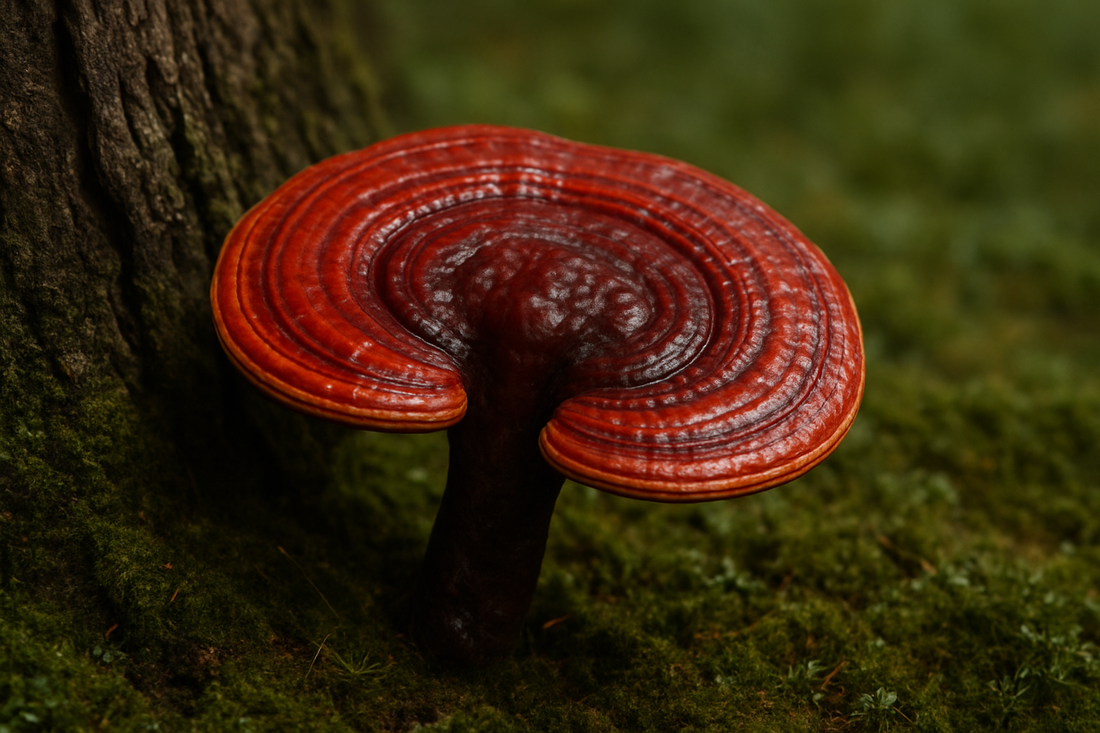For thousands of years, Reishi mushroom (Ganoderma lucidum) has been known as the “Mushroom of Immortality” in traditional Chinese medicine. Today, it's revered in the wellness world for its powerful adaptogenic properties that help the body adapt to stress and strengthen immunity.
Why Reishi?
Reishi is a woody, bitter mushroom that’s not commonly eaten fresh but is often used in teas, tinctures, capsules, and powders. It contains a rich array of polysaccharides, triterpenoids, and beta-glucans—all compounds with scientifically supported benefits.
Key Benefits of Reishi
1. Supports a Healthy Stress Response
Reishi is an adaptogen, meaning it helps balance the body’s stress hormones and nervous system. A 2011 study published in Journal of Ethnopharmacology showed that Reishi extract could reduce fatigue and improve quality of life in people with neurasthenia—a stress-related condition (Zhao et al., 2011).
2. Boosts the Immune System
Beta-glucans found in Reishi stimulate white blood cells, improving immune defense mechanisms. Research in Frontiers in Pharmacology (2018) found that Reishi enhances the activity of macrophages and natural killer cells, both essential in fighting infections and abnormal cell growth (Wachtel-Galor et al., 2018).
3. Promotes Better Sleep
Traditionally, Reishi has been used as a sleep tonic. Animal studies confirm its sedative effects, improving total sleep time and reducing sleep latency (Yin et al., 2012).
How to Use Reishi
For daily support, Reishi can be consumed as:
-
Evening tea to calm the nervous system
-
Capsules or powders for immune modulation
-
Tinctures for targeted therapeutic use
Look for dual-extracted products to ensure you're getting both the water- and alcohol-soluble compounds.
References
-
Zhao, H., Zhang, Q., Wang, J., et al. (2011). “Ganoderma lucidum for the treatment of fatigue in breast cancer patients undergoing endocrine therapy: a pilot clinical trial.” Journal of Ethnopharmacology, 139(2), 510–516. https://doi.org/10.1016/j.jep.2011.11.002
-
Wachtel-Galor, S., Tomlinson, B., & Benzie, I. F. (2018). "Ganoderma lucidum (Lingzhi or Reishi): A Medicinal Mushroom." Frontiers in Pharmacology, 9, 121. https://doi.org/10.3389/fphar.2018.00121
-
Yin, M. C., et al. (2012). “Sedative effects of Reishi in mice.” Journal of Food and Drug Analysis, 20(3), 488–492.

